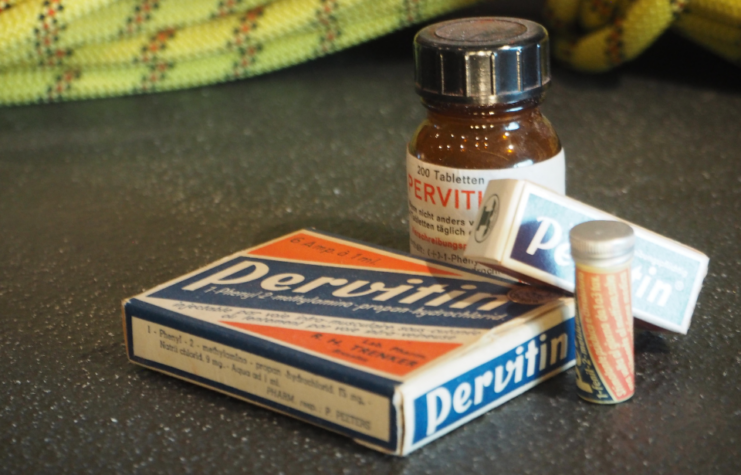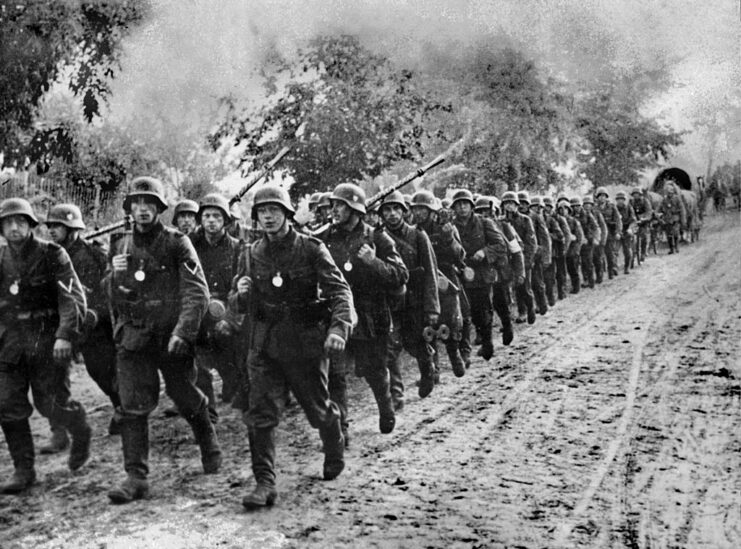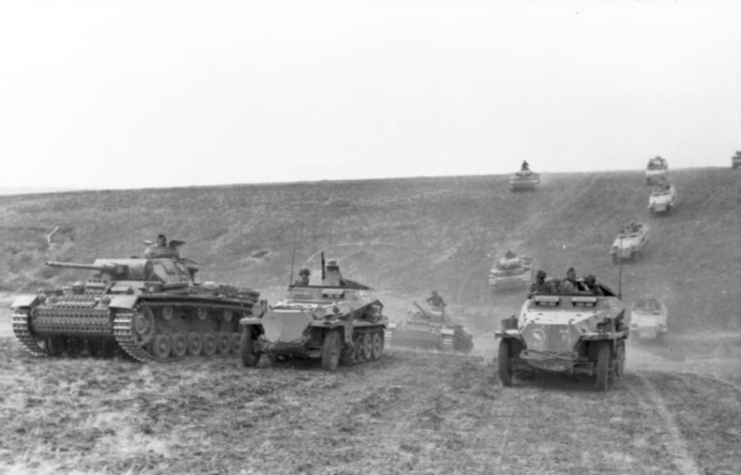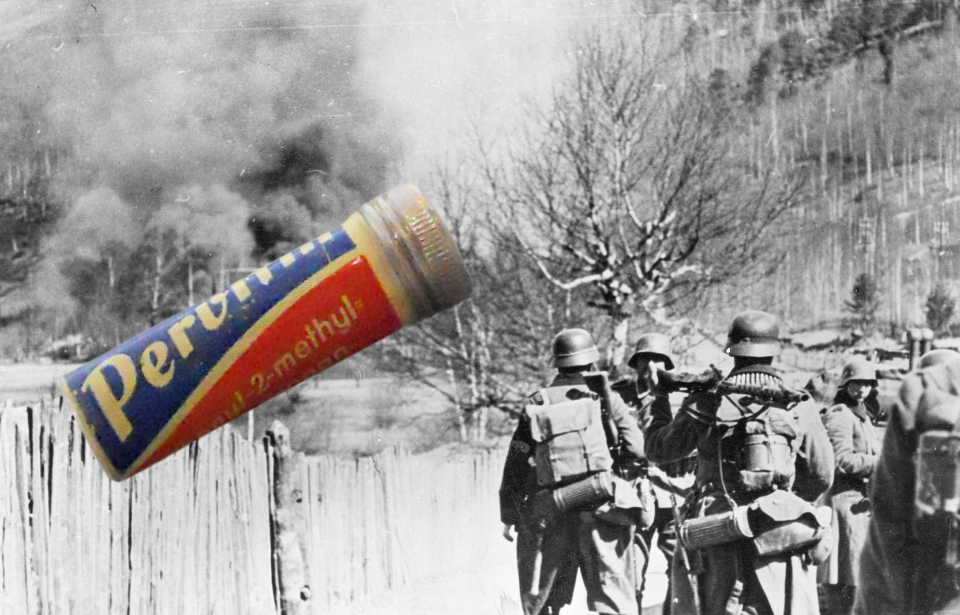Blitzkrieg – “lightning war” – was a German military strategy employed during the Second World War. The tactic was refined by the Wehrmacht, and played a crucial role in Germany’s early success at the start of the conflict. A combination of speed, surprise and overwhelming force characterized the military’s advances, with the goal being to achieve swift, decisive victories. To aid in this, the advancing troops were issued Pervitin tablets.
Not all substances were viewed equally in Germany

The German government held strict anti-drug views, with their ideology centered on strong, healthy people. Drug users weren’t necessary to win the war, with the Führer once stating, “We don’t need weak people, we want only the strong!” That being said, not all drugs were viewed equally. Opium, for instance, was believed to give nothing to the user, while methamphetamine would make a strong person even stronger.
In 1938, the latter was marketed as Pervitin. Available as a nonprescription drug, it quickly took the nation by storm and was soon noticed by Dr. Otto Friedrich Ranke, director of the Institute for General and Defense Physiology at Berlin’s Academy of Military Medicine.
Ranke tested the drug on 90 university students. It was found that, when taking it, users had heightened concentration, self-confidence and an increased willingness to take risks. It also reduced hunger, a need for sleep and sensitivity to pain. Talking about the results, Ranke commented that Pervitin would be “an excellent substance for rousing a weary squad…We may grasp what far-reaching military significance it would have if we managed to remove the natural tiredness using medical methods.”
In September 1939, following the completion of these trials, it was decided Pervitin could help Germany win World War II.
German servicemen were given Pervitin

Pervitin was believed to be the “ideal war drug,” and it quickly earned a number of nicknames. Luftwaffe airmen called it “Stuka-Tabletten” (Stuka-Tablets), “Fliegerschokolade” (Flyer’s Chocolate) and “Pilot’s Salt.” The service’s commander even had his own name associated with the substance, given his known drug addiction.
Outside of the Luftwaffe, Pervitin was referred to as “Panzerschokolade” (Tanker’s Chocolate) by infantrymen.
The Temmler-Werke factory produced up to 833,000 tablets a day. Between April and July 1940, over 35 million three-milligram doses of Pervitin were produced and given to the Wehrmacht and Luftwaffe.
Pervitin had a number of side effects

Germany’s blitzkrieg tactics and methamphetamine use went hand-in-hand. These advances, which saw German forces sprint across Europe, allowed those taking part to keep up on limited sleep, which would have slowed them down. Medical historian Peter Steinkamp once wrote, “Blitzkrieg was guided by methamphetamine. If not to say that Blitzkrieg was founded on methamphetamine.”
However, it didn’t take long for side effects to be noticed. These and withdrawal symptoms made the Wehrmacht cut back on the use of Pervitin in 1940. A year later, it was restricted even further, with civilian use requiring a prescription and the military keeping a tight control over its stocks. Soldiers who received doses were only given a couple of tablets at a time and told not to use them in combat.
Łukasz Kamieński, a historian, once commented, “A soldier going to battle of Pervitin usually found himself unable to perform effectively for the next day or two. Suffering from a drug hangover and looking more like a zombie than a great warrior, he had to recover from the side effects.”
More from us: Emperor Hirohito’s Brother Criticized Japan’s War Crimes In the Second World War
The behavior of each serviceman was different. Some became violent, and that would sometimes manifest in their being overly violent toward their enemies or civilians, while others actually attacked officers. Despite this, Pervitin was readily available to the German public after the war, either by prescription or on the black market. It wasn’t until the 1970s and ’80s that it stopped being prescribed, and, after the reunification of Germany, it was made illegal.
